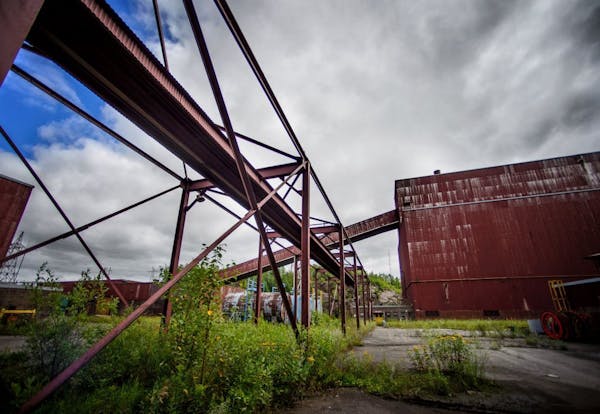WASHINGTON — Minnesota Rep. Betty McCollum introduced a bill Wednesday that would permanently remove roughly 234,000 aces of federal wilderness lands and waters from sulfide-ore and copper mining.
McCollum said her bill is an effort to treat Minnesota's iconic Boundary Waters Canoe Area Wilderness "with the same respect as the Grand Canyon" and other natural wonders.
The fate of the Boundary Waters remains a flash point of passionate debate because of nearby sulfide-ore copper mining leases granted by the Trump administration to the Chilean mining company Twin Metals.
McCollum says mining threatens to pollute the Boundary Waters with acid-runoff and destroy the tourist industry. She proposed "permanent protections for this vulnerable and fragile ecosystem."
Her legislation, co-sponsored by fellow Democratic Rep. Dean Phillips of Minnesota, carved out an exception for the removal of "sand, gravel, granite, iron ore and taconite" with Forest Service approval.
Nevertheless, the bill drew a quick, angry rebuke from Republican Rep. Pete Stauber, who represents the area and says his constituents need good-paying mining jobs.
"In northern Minnesota, mining is our past, our present, and our future," Stauber said in a statement. "For decades, we have responsibly mined under the strongest environmental and labor standards in the world ... This utter disregard for our way of life is insulting."
The validity of Twin Metals' leases is being challenged in court, said Becky Rom of the Campaign to Save the Boundary Waters.
McCollum's proposal would not negate those leases, Rom said. But if the bill becomes law, she said it will keep Twin Metals from acquiring additional land that the Bureau of Land Management says it must have to operate a mine.
Twin Metals has said it can operate the mine with current leases. The company called McCollum's bill an attempt to bypass legitimate review processes.
"The Twin Metals Minnesota proposed mine site is located in an area where mining is specifically designated as a desired activity under the Superior National Forest Plan," the company said in a statement. "No mining is allowed in the Boundary Waters Canoe Area, and our proposed project is located well outside the state and federal buffer zones."
McCollum, a Democrat whose district includes St. Paul, conceded that some residents of northeastern Minnesota want the mining jobs that would come with Twin Metals' and other mining plans. But, she added, "I'm here to defend the area."
Chances of the bill passing are better in the Democratically controlled House than in the Republican-run Senate. And President Donald Trump is likely to veto any attempt to restrict development.
Stauber indicated as much in his statement. "I'm confident that, with the support of the Trump [a]dministration, our way of life will prevail," he said.

A tale of 124 hoarded Minnesota cats has at least a hundred happy endings

Walz, St. Paul leaders urge support for copper wire theft bill: 'We've got to get in front of it'
Body of missing canoeist, 15, recovered from southwest Minnesota lake

High winds flipped a FedEx truck traveling on Bong Bridge in Duluth

